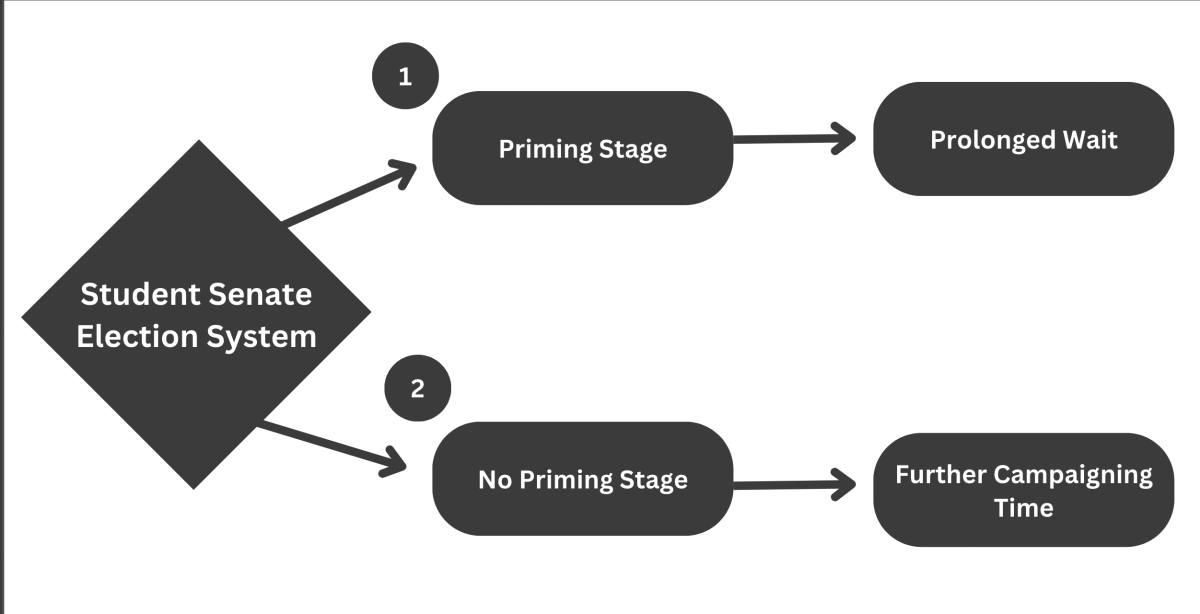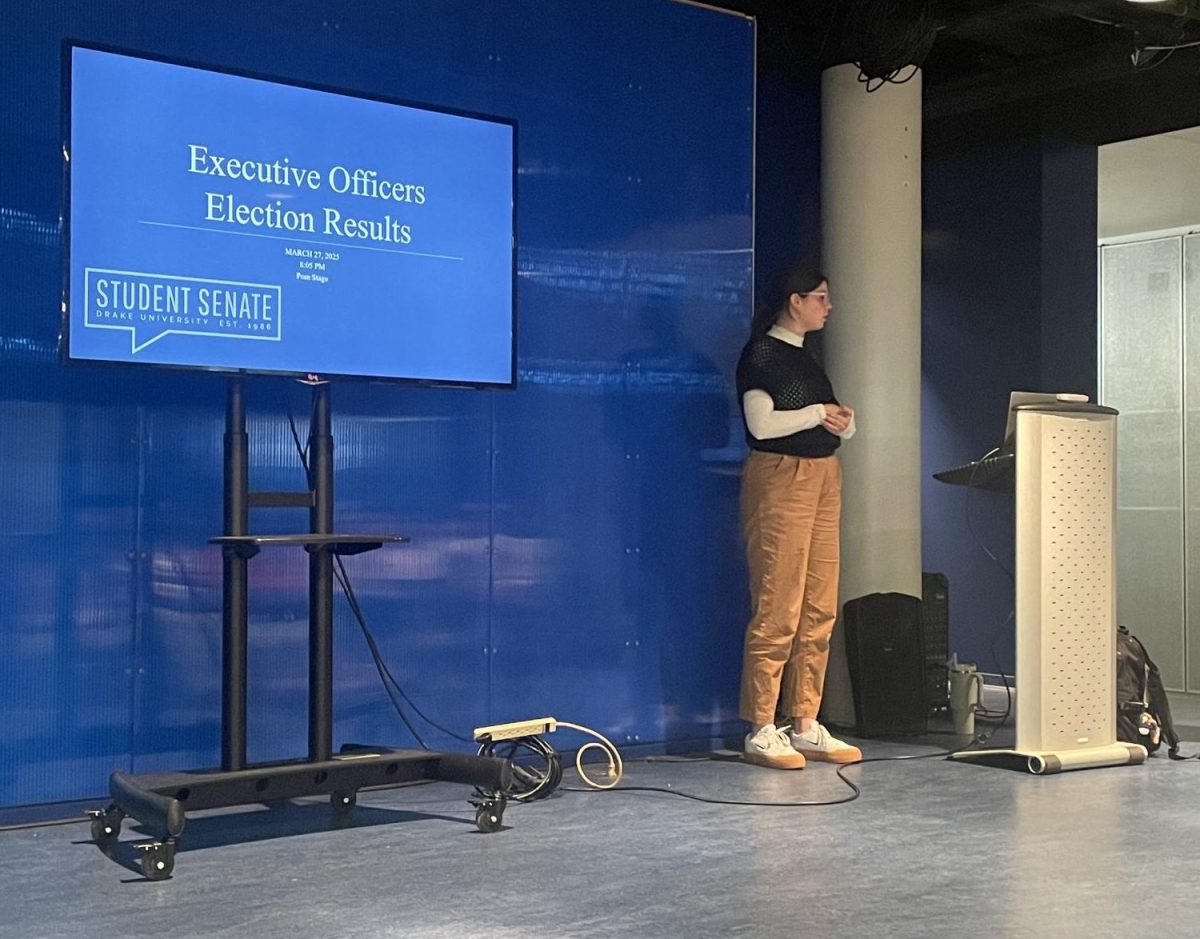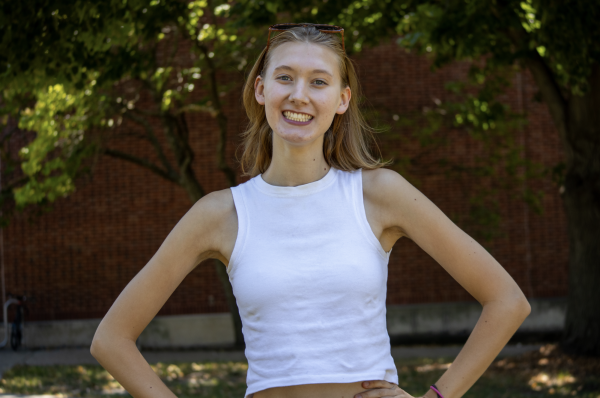On Feb. 9, Student Senate confirmed a significant alteration in the campaigning process for this year’s general election cycle, as well as for the future of the election system.
Student Body President Connor Oetzmann and Vice President of Student Life Ruwayda Egal announced on Feb. 2 the removal of the priming stage, which was enacted during the height of the pandemic.
The proposal was tabled for one week as per the Senate handbook when any structural changes are proposed.
“[In the bylaws] we’ll be totally removing the priming stage, but for this new election, we’re going to be adding more time [for the campaigning process],” Egal said during the senate meeting on Feb. 2.
The original intent of the priming stage was to allow students more time to get their campaigning team together, send out emails and draw up poster designs. During the priming stage, students were unable to tell others the platforms they were running on, only that they were running for a senate position.
“We just kind of felt that the priming stage wasn’t really needed,” Egal said. “I understand that during the COVID era [it helped] to amplify students’ mental health, but I didn’t really understand it right now. I think it would just be best to expand the election time and just take away the priming stage because you never know what you’re really supposed to do and I think it just adds a lot of confusion.”
The priming stage is not necessary for the election process now that the campus has returned to in-person learning, Oetzmann said in an interview. It was also a confusing period for candidates just beginning to vie for positions in the senate during election season.
With this change now in effect, campaigning students will be able to jump right into the campaigning process after completing the necessary candidacy groundwork instead of waiting until they are allowed to discuss their policy plans.
Treasurer Daniel Krey gave his approval for the motion at the meeting.
“[The priming stage] is kind of confusing,” Krey said. “Hopefully [removing it will] incentivize more people to run and have better competition and better candidates.”
School of Journalism and Mass Communications Senator Gannon Henry also lent his support to the motion.
“The priming stage was just an additional waiting period before you could actually be like, ‘Hey, I’m running and stuff,’” Henry said. “So if anything, I felt like it was kind of a hindrance because it was just like having to sit there and be anxious about it. I think this is a good change.”
Other changes to the election process include starting the election announcements at 5 p.m. instead of what has been the usual 8 p.m. call time and making the actual campaigning process about a week longer.











